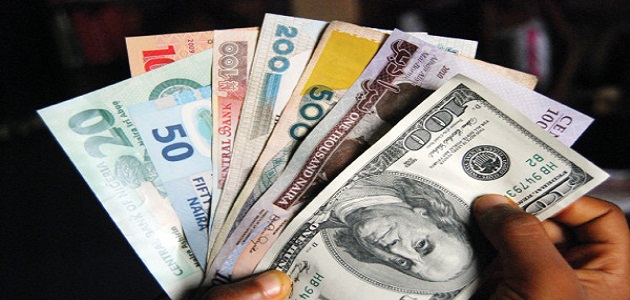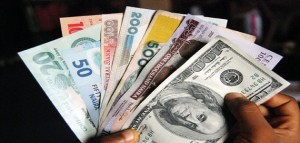

It is as a matter of fact, a period of renaissance for Nigeria’s economic and indeed the economic development of African region. At the time of millennium, it seem though, some form of cosmic force spark off to energise what some analysts describe as a natural desire for change within Nigeria’s economic environment. Perhaps, the spark could be attributed to persistent hunger growing in dimension, or increase in awareness among the people.
Like other parts of the world, the desire for economic development and manifestation of change in the economic space is total in Nigeria. It is also worthy of note that the force behind this evolution is cohesive. More Nigerians are becoming literate and educated in line with global standard. Creativity and competitiveness is growing among small but steadily growing population of men and women in Nigeria. In addition to that, political leadership is assuming a new dimension of business minded policy development procedures capable of instigating measurable economic gains.
However, Economic Confidential findings reveal that, the change Nigeria is experiencing is still within the traditional framework of based economic engagement, against global economic development based on technological advancement, super human capital equipment, aggressive innovativeness, economic diversification and national alignment. On this note, analysts believe that what Nigerians has experienced cannot be described as enduring and impactful.
Another factor that Analysts says could be a call for concern is the basic nature of Nigerian economic engagement. For these Analysts, Nigerian resources are open to exploitation by technologically superior economies. So, the explorative tendencies of developed economies and emerging market desire deepen the weakening power of Nigerian economic.
To this end, the current economic dilemma Nigeria has found itself as a nation comes as no surprise to millions of Nigerians. Many say they’ve never known it so tough. The slump in global oil prices has hit Nigeria hard. The government depends on oil sales for about 70% of its revenues. While it is believe in some quarters that the cause of the present economic challenges must be attributed to previous government, others are of the opinion that current government economic policies made a bad situation even worse.
Economic Confidential also gathered that the decision to delay devaluing Nigeria’s currency meant many businesses struggled to get foreign currency to pay for imports, which had a cooling effect on the entire economy. Following enormous pressure, the government changed tack allowing the naira to float. That has led to a spike in inflation, but the hope is that it will attract foreign investors. The government also says the country needs to import less: it wants to see more products made in Nigeria.
Speaking to Economic Confidential on this issue, an economist, Fagbemi Oluwafemi said; “one of the ways that the government can come out of current economic problem to a new meaningful economic development to drive paradigm shift for actualization sustainable economic growth and development is to sincerely engage experts in the field of economic without a political affiliation.”
“People at the corridor of power must indicate genuine intention towards the establishment of economic structures with potentials to stimulate and propel inherent potential towards productivity and gainful engagement.” He noted.
Continuing, he disclosed that “there must be deliberate efforts resultant upon efforts policy adjustment in reflection of the global trend. It is a country with an immense regional and global responsibilities, Nigeria assumes a strategic position that compels carefulness, tact and extreme commitment in drive for development in keeping with vision 2020 and in a quest for deepening the national implementation.”
According to him, “critical to Nigeria’s economic development is the engineering sector, which has long stood as a major driver of growth and an essential solution in addressing the country’s infrastructural deficiencies. The aim for Nigerian policymakers, as is the case with many other emerging markets, is to capitalise on the opportunities that have come as a result of rapid economic growth and focus first on improving the building blocks on which long-term prosperity depends.”
“This success is due principally to the sector’s expertise, which generally amounts to enough talent and capacity to cope with any project that might come its way. This expertise can best be seen in the construction and manufacturing industries, which are booming sectors in the country. What’s more, the spectrum of the ongoing engineering activities and the growth in GDP has enhanced the development and training of young engineers, as well as the creation of job opportunities,” he added.
Reacting to what investors need to do before investing in this period of economic recession, a brand management consultant, Bernard Okhakume said that; “due to the rapid changes in today’s marketplace and new emerging business practices in Nigeria, it is easy for an organization to fall behind if it does not analyse its macro-environment such as demographic, economic, social-cultural, natural, technological and political-legal environments before it plans to invest in an economy under recession.”
He pointed out that “Nigeria’s retail sector, which accounts for 17% of the local economy, has seen a favourable change over the last years. Although small local/informal markets remain important within a Nigerians shopping experience, political and economic conditions have facilitated the formalization and sophistication of the country’s retail sector, offering great opportunities for both the seller/investor and the buyer of retail goods.”
“On one hand, the growth and relative stability of the Nigerian economy over the past years has importantly contributed to the expansion of the country’s middle class and to the attraction for foreign investors. The disposable income of this emerging middle-class, generally educated and ambitious, is considered crucial to continue pushing the Nigerian economy forward, not only through its impact on the local retail sector,” he added.
Nigeria’s’ economy is expected to become the largest one in the African continent by 2025, surpassing the South African economy due to the expansion of consumer spending in Africa’s most populous country (over 170 million inhabitants).
On what the government needs to do in order to attract foreign investors; he mentioned that the government needs to provide an environment that is business friendly and ensure that the regulatory agencies operate within the ambit of laws.
